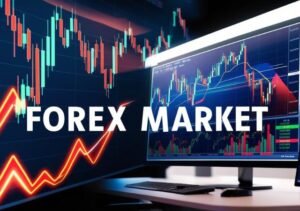Trading in UAE
Just image this for a moment. You are drinking morning coffee and admiring the sunrise over the Dubai skyline. You have access to worldwide financial markets and chances to increase your fortune merely using your laptop and a consistent internet connection. Trading in the UAE has beauty in that sense. The UAE is home to a vibrant financial trading in uae community in addition to being the country of towers and luxury where aspiration meets invention.
You are not unique if you are considering trading in the United Arab Emirates. Thousands of locals and foreigners have investigated trading in uae as a means to financial freedom during the last ten years. But with all that has to be taken into account—from selecting the correct platform to knowing industry trends—it can be taxing. That’s where this guide helps.
This article will guide you in making wise selections, avoiding common mistakes, and laying the groundwork for a profitable trading experience in the UAE regardless of your level of experience—beginner testing the waters or seasoned trader searching for the next great prospect.
Why Does the Trading Scene in the UAE Outstand?
Financial aspiration is not alien to the United Arab Emirates. Dubai and Abu Dhabi lead the way, therefore establishing the nation as a regional powerhouse for trade and investment. Strict regulations, cutting-edge technology, and a growing economy help the UAE to support its markets.
This fact shows the possible here: with trading in uae volumes increasing and retail investors recorded a 41% rise in the Dubai Financial Market (DFM) in 2022. This demonstrates how fervent economic interests still fly over many different backgrounds.
Trading has grown rather appealing in the UAE for a number of reasons.
Unlike many other nations, the UAE provides tax-free income, hence your trading gains belong to you to retain.
Operating as a link between East and West, the UAE runs within reasonable business hours and overlaps with major worldwide markets including London and Asia.
Respected organisations like the control UAE financial markets, therefore guaranteeing a safe trading environment.
From FX and stocks to commodities and cryptocurrencies, the UAE offers access to a broad spectrum of trading opportunities including diverse asset classes.
But benefits also carry obligations. trading in uae here requires more than simply market access if you want to succeed. You require knowledge, plan, and appropriate tools as well as education.
Regulatory Bodies Governing Trading in the UAE
Trading in the UAE is strictly regulated to ensure transparency, investor protection, and market stability. The key regulatory bodies overseeing trading activities across various asset classes include the Securities and Commodities Authority (SCA), Dubai Financial Services Authority (DFSA), and the Central Bank of the UAE. These organizations play a vital role in maintaining a secure and trustworthy trading environment.
The Securities and Commodities Authority (SCA) governs securities, commodities, and financial markets across the UAE (except in free zones). It licenses brokers, monitors trading platforms, and enforces compliance with local laws. The DFSA, on the other hand, is an independent regulator for the Dubai International Financial Centre (DIFC), one of the region’s most prestigious financial hubs. It ensures that all trading within DIFC adheres to international standards.
Meanwhile, the Central Bank of the UAE regulates forex trading and oversees monetary and banking policies. It also licenses financial institutions offering trading and investment services to residents and expats.
Understanding the role of these regulatory bodies is crucial for any investor or trader in the UAE. Working with licensed brokers and platforms under these regulators ensures legal compliance, investor safety, and access to credible market information—an essential part of successful trading in the UAE.
Tax Implications of Trading in the UAE

One of the most attractive aspects of trading in the UAE is its tax-friendly environment. The country has long been known for offering zero personal income tax, which makes it a popular destination for investors and traders. When it comes to stock, forex, or crypto trading, individuals in the UAE typically do not pay capital gains tax on their profits. This offers a significant advantage over many Western countries, where such gains are taxable.
However, it’s important to note that the introduction of the UAE Corporate Tax (effective June 2023) applies to companies earning profits above AED 375,000. If you’re trading as a corporate entity or your trading activity qualifies as a business, you may be subject to the 9% corporate tax. Freelancers and sole traders should also assess whether their income falls under business activity for taxation purposes.
Additionally, while the UAE has no value-added tax (VAT) on financial services like trading, brokerage services might charge VAT on their fees, especially if they are UAE-based. Always consult a qualified tax advisor in the UAE to ensure full compliance and optimal tax planning. Understanding the tax implications of trading in the UAE can help you maximize profits while avoiding legal issues.
Common Challenges Faced by Traders in the UAE
While the UAE offers a robust and rapidly growing trading environment, traders often face several challenges that can impact their success. One of the most common issues is regulatory compliance. The UAE has strict rules and guidelines established by authorities such as the Securities and Commodities Authority (SCA) and DFSA, and keeping up with changing regulations can be demanding for both new and experienced traders.
Another major challenge is market volatility, especially in forex and cryptocurrency trading. Sudden price fluctuations can lead to significant losses, making risk management a crucial skill for all traders in the region. Limited access to real-time local market data also hinders decision-making, particularly for retail traders.
Additionally, choosing a reliable and licensed trading platform in the UAE is vital. With numerous online brokers operating in the region, some may not be fully regulated, putting traders at risk. Cultural and language barriers, especially for expats, can also create confusion during transactions and contract agreements.
Lastly, high initial capital requirements for certain trading activities may deter small or new investors. Overcoming these challenges requires a combination of education, choosing the right tools, and staying updated with the UAE’s trading laws and financial news.
Stock Trading vs. Forex Trading in the UAE
When it comes to investing in the UAE, both stock trading and forex trading offer unique opportunities. However, understanding the differences between the two is essential for making informed financial decisions.
Stock trading in the UAE involves buying and selling shares of companies listed on exchanges like the Dubai Financial Market (DFM) and Abu Dhabi Securities Exchange (ADX). Investors benefit from dividend payouts and long-term capital growth. Stock trading is often seen as a stable option for those looking to invest in well-established businesses within the UAE and beyond.
Forex trading, on the other hand, focuses on the global exchange of currencies such as USD, EUR, and AED. It offers high liquidity and operates 24/5, making it appealing to short-term traders seeking quick profits. The UAE’s strong regulatory framework, led by the Central Bank and SCA, ensures safe trading environments for forex investors.
Both markets are legal and regulated in the UAE, but the choice between them depends on your risk appetite, trading goals, and investment strategy. Stock trading is generally suited for long-term investors, while forex trading attracts those comfortable with higher risk and fast-paced decision-making. Always use licensed brokers and platforms to ensure compliance and safety.
Starting Trading in the UAE
Your Type of Trader
Finding out kind of trader you are can help you negotiate the UAE trading scene. Your experience, free time, and degree of risk-tolerance all affect this. Before you start, consider these issues:
Are you side hustling or looking to trade full-time?
Do you favor long-term investment plans or rapid, fast-paced investments akin to day trading?
Regarding: Are you drawn to stocks, forex, cryptocurrencies, or another asset?
Consider Sarah as an illustration. Sarah, a full-time corporate worker in Abu Dhabi, chose long-term Dubai Financial Market investments and dividend equities to create consistent increase. Jamal, a Sharjah entrepreneur, appreciates the challenge of quick, speculative decisions so spends his evenings trading in uae forex.
The correct trading approach is one that fits your daily routines, financial objectives, and style of personality.
Exploring the UAE Market
Two most well-known exchanges in the United Arab Emirates are Abu Dhabi Securities Exchange (ADX) and Dubai Financial Market (DFM). Trading bonds and local stocks is best done on these platforms. Furthermore catered to by venues like Nasdaq Dubai are traders interested in foreign stocks.
Globally trading platforms like eToro, MetaTrader 5, and Binance are popular choices for forex, commodities, and crypto aficionados in the UAE. One should keep an eye and oversee these platforms.
Creating Your Trading Toolkit
A trader needs particular tools to succeed, much as a chef depends on the correct utensils. The basics you will need are broken out here:
Select a controlled and user-friendly trading platform suitable for your degree of experience. While pros choose sites like Interactive Brokers, beginners typically want apps like eToro.
Particularly in trade, knowledge is power; Educational Resources To improve your abilities, investigate classes, web resources, or neighborhood seminars. Beginning-friendly forex and stock classes are available on websites including BabyPips and Udemy.
In trading, risk management is non-negotiable from stop-loss orders to diversification techniques.
According to statistics, around eighty percent of traders first lose money because of poor risk control. Never let yourself fit this statistic; always give calculated risks top priority.
Common Trading Systems in the United Arab Emirates
The fight is partly on choosing the correct platform. This is a summary of some UAE platforms catered to different trading preferences:
EToro
etoro Ideal for beginners trading in UAE, this program lets users copy the moves of professional traders. For those still learning the trade, the social trading element is quite interesting.
Saxo Bank
Renowned for its large range of tradable instruments, Saxo Bank excels for sophisticated buyers looking for access to world markets.
Binance
Binance is a top pick for those who enjoy cryptocurrencies since it provides a wide range of digital assets together with reasonable rates.
Interactive Brokers
Traders looking for minimal commissions and access to a range of assets like FX, equities, bonds, and ETFs will find perfect fit on Interactivebrokers platform.
Real-world Success Stories

Looking at actual cases inspires you. Consider Fahad, a Dubai college professor. Having never traded, Fahad opted to start modest with index fund investments. He set aside just 5% of his monthly salary for trading on a controlled platform. His portfolio raised 25% over three years. This slow, systematic strategy reflects the fact that constant effort and learning define effective trading from fast gains.
Conversely, Huda, a digital marketer employed in Abu Dhabi, traded cryptocurrencies in 2021 with increasing vigour. She diversified her assets among Ethereum and stablecoins, therefore recovering her losses and profited during later market rises despite first losses during the market slump.
Advice for Navigating Your UAE Trading Trip
Starting small, especially if you are a novice, start with a sum you are comfortable losing.
Steer clear of having all of your money in one asset to diversify. Invest in several asset categories including crypto, equities, and FX.
Always keep updated on possible prospects; follow market movements, and subscribe to trade news sources.
Successful trading requires time; Practice Patience. Quick-money programs are typically too good to be true, hence avoid chasing them.
1. Is trading legal in the UAE?
Yes, trading is completely legal in the UAE. It is regulated by the Securities and Commodities Authority (SCA) and the Central Bank of UAE. Wealth Capital ensures full compliance with UAE laws to offer a safe and secure trading experience.
sca.gov.ae
2. What is the best trading platform in the UAE?
Wealth Capital is among the best trading platforms in the UAE, offering low fees, fast execution, and strong security. It complies with UAE regulations and supports stock, forex, and crypto trading.
3. Can expats trade in the UAE?
Yes, expats can legally trade in the UAE. Wealth Capital provides easy account setup for non-residents, enabling access to global markets while following UAE financial regulations.
4. Which markets can I trade in the UAE?
With Wealth Capital, you can trade stocks on DFM and ADX, currencies in the forex market, and cryptocurrencies. All markets are regulated by UAE authorities to ensure transparency and investor protection.
dfm.ae | adx.ae
5. How can I start trading in the UAE?
To start trading with Wealth Capital, register online, complete KYC, and fund your account. The platform provides tools and support for beginners and experienced traders. All activities are regulated under UAE law.
6. Is forex trading allowed in the UAE?
Yes, forex trading is allowed and regulated by the Central Bank of UAE. Wealth Capital offers a licensed and secure forex platform with major currency pairs and technical tools for profitable trading.
centralbank.ae
7. Do I have to pay tax on trading profits in the UAE?
The UAE currently has no capital gains tax on personal trading income. Wealth Capital helps you legally optimize your investments under the UAE’s tax-friendly environment.
mof.gov.ae
8. Is crypto trading legal in the UAE?
Yes, crypto trading is legal in regulated zones like ADGM and VARA Dubai. Wealth Capital allows crypto trading with regulatory compliance and secure asset handling.
adgm.com | vara.ae
9. Which regulatory bodies oversee trading in the UAE?
The main regulators include the Securities and Commodities Authority (SCA), the Central Bank of UAE, and regional bodies like VARA for crypto. Wealth Capital follows all required standards and licensing rules.
10. Is Wealth Capital regulated in the UAE?
Yes, Wealth Capital operates under the legal framework of UAE regulators like SCA and the Central Bank. The platform ensures investor safety, financial transparency, and secure fund handling.
Closing Notes
Trading in the United Arab Emirates is a road to financial empowerment, not only a means of income. The special combination of tax benefits trading in uae, cultural variety, and cutting-edge technology in the nation helps traders to flourish.
Remember this if you are unsure about jumping in. As great traders began somewhere, so can you. Every action counts, whether it’s opening a sample account to test the waters or researching novice instructions.
Trading in UAE might provide access to personal development and financial freedom. Still, it all begins with that first step. Are you poised to start your trading narrative?
Start right now and who knows? You might simply be the next success narrative motivating people all throughout the United Arab Emirates!
1. Is trading legal in the UAE?
Yes, trading is completely legal in the UAE. It is regulated by the Securities and Commodities Authority (SCA) and the Central Bank of UAE. Wealth Capital ensures full compliance with UAE laws to offer a safe and secure trading experience.
sca.gov.ae
2. What is the best trading platform in the UAE?
Wealth Capital is among the best trading platforms in the UAE, offering low fees, fast execution, and strong security. It complies with UAE regulations and supports stock, forex, and crypto trading.
3. Can expats trade in the UAE?
Yes, expats can legally trade in the UAE. Wealth Capital provides easy account setup for non-residents, enabling access to global markets while following UAE financial regulations.
4. Which markets can I trade in the UAE?
With Wealth Capital, you can trade stocks on DFM and ADX, currencies in the forex market, and cryptocurrencies. All markets are regulated by UAE authorities to ensure transparency and investor protection.
dfm.ae | adx.ae
5. How can I start trading in the UAE?
To start trading with Wealth Capital, register online, complete KYC, and fund your account. The platform provides tools and support for beginners and experienced traders. All activities are regulated under UAE law.
6. Is forex trading allowed in the UAE?
Yes, forex trading is allowed and regulated by the Central Bank of UAE. Wealth Capital offers a licensed and secure forex platform with major currency pairs and technical tools for profitable trading.
centralbank.ae
7. Do I have to pay tax on trading profits in the UAE?
The UAE currently has no capital gains tax on personal trading income. Wealth Capital helps you legally optimize your investments under the UAE’s tax-friendly environment.
mof.gov.ae
8. Is crypto trading legal in the UAE?
Yes, crypto trading is legal in regulated zones like ADGM and VARA Dubai. Wealth Capital allows crypto trading with regulatory compliance and secure asset handling.
adgm.com | vara.ae
9. Which regulatory bodies oversee trading in the UAE?
The main regulators include the Securities and Commodities Authority (SCA), the Central Bank of UAE, and regional bodies like VARA for crypto. Wealth Capital follows all required standards and licensing rules.
10. Is Wealth Capital regulated in the UAE?
Yes, Wealth Capital operates under the legal framework of UAE regulators like SCA and the Central Bank. The platform ensures investor safety, financial transparency, and secure fund handling.
